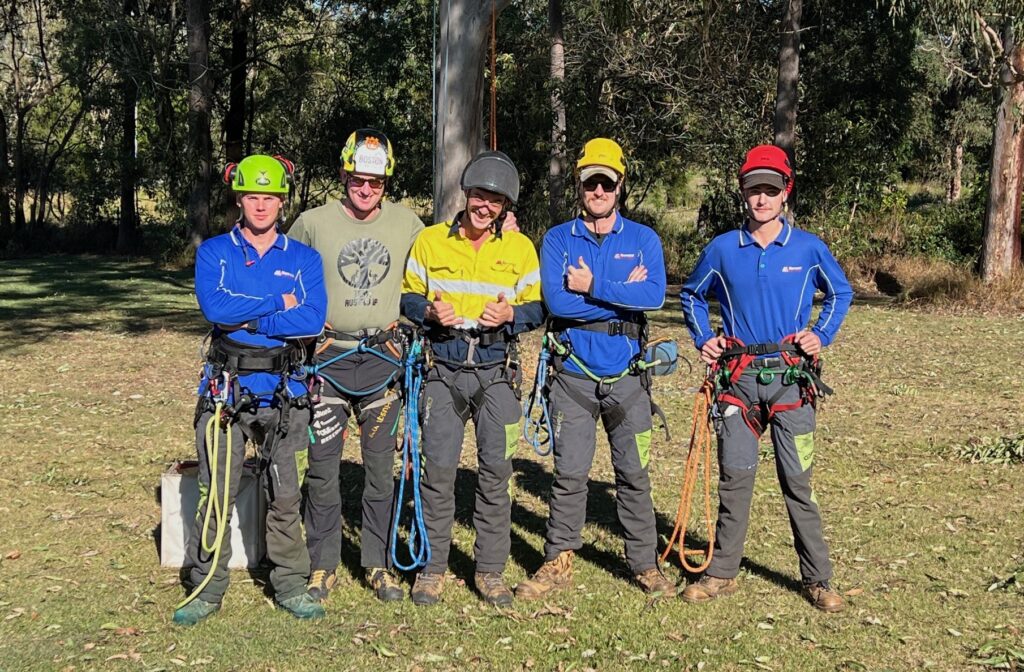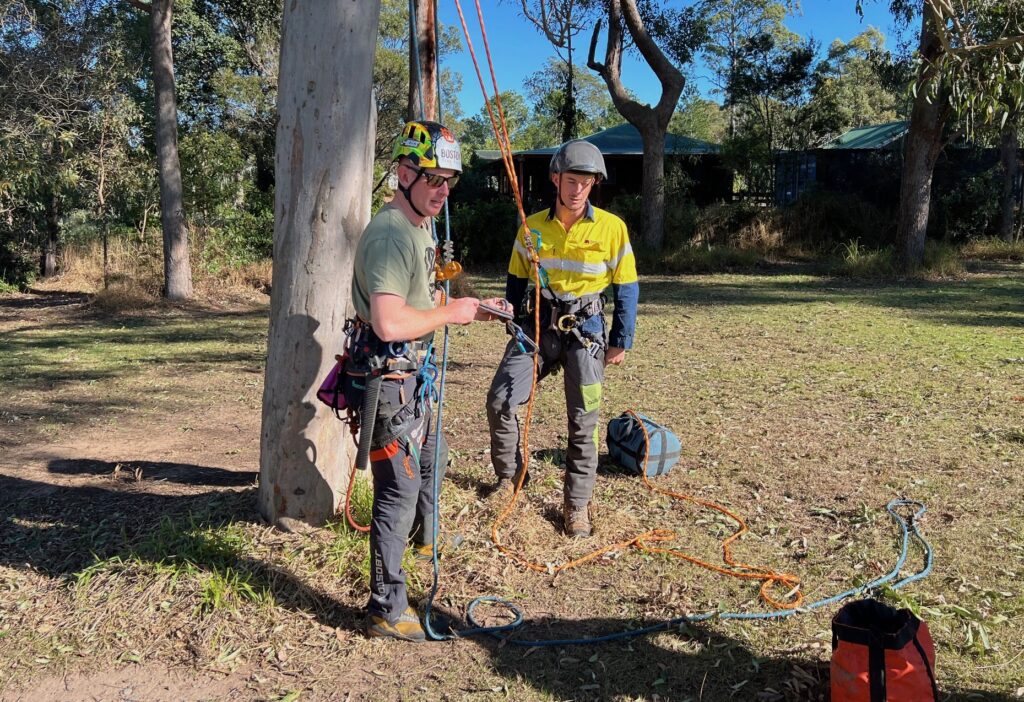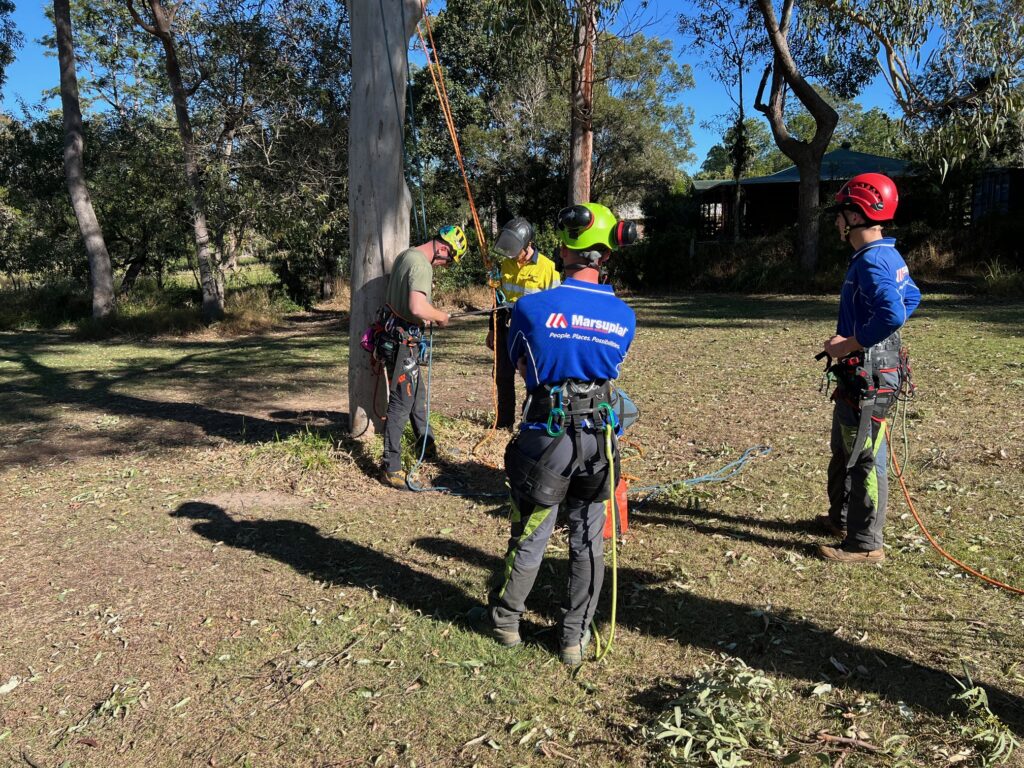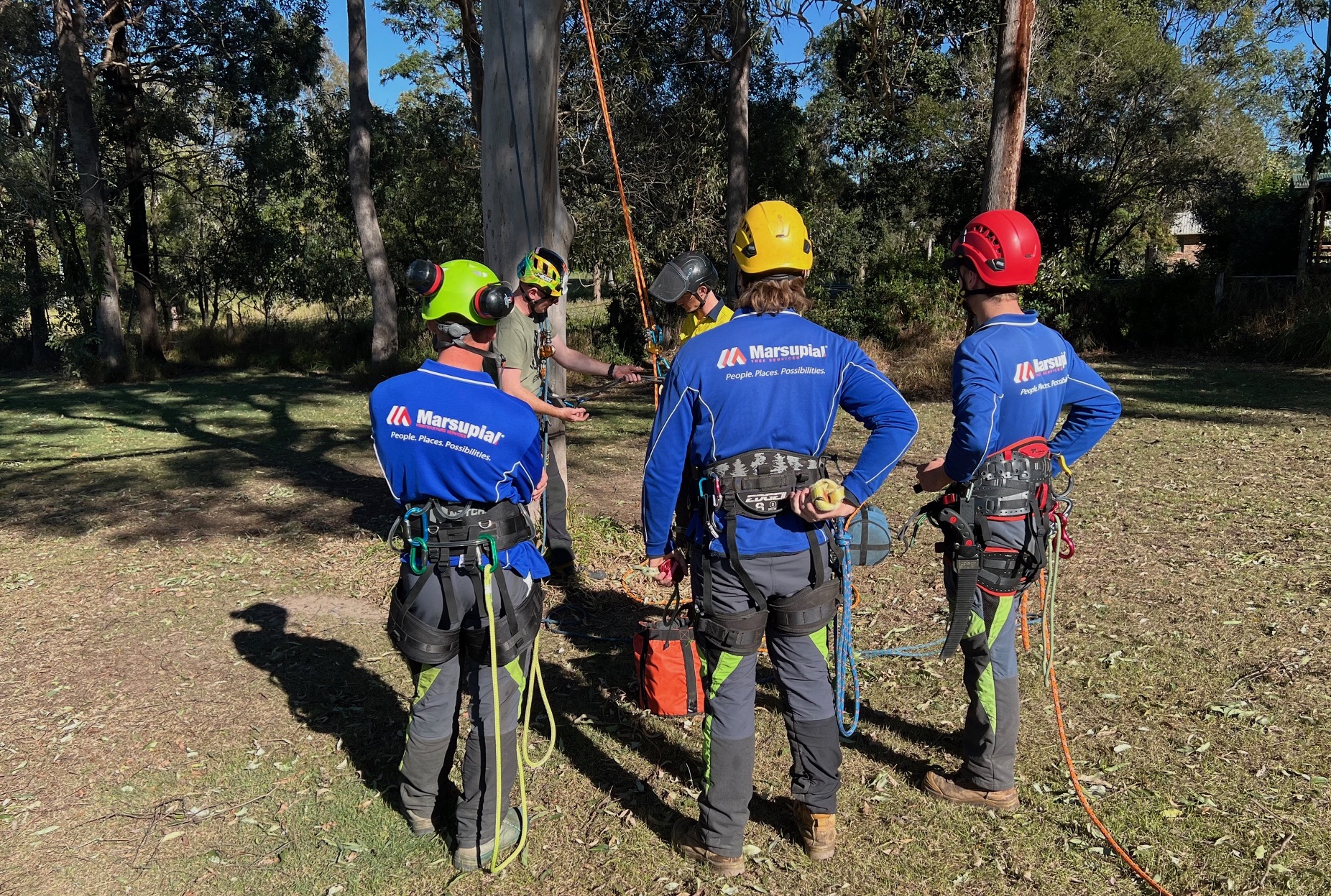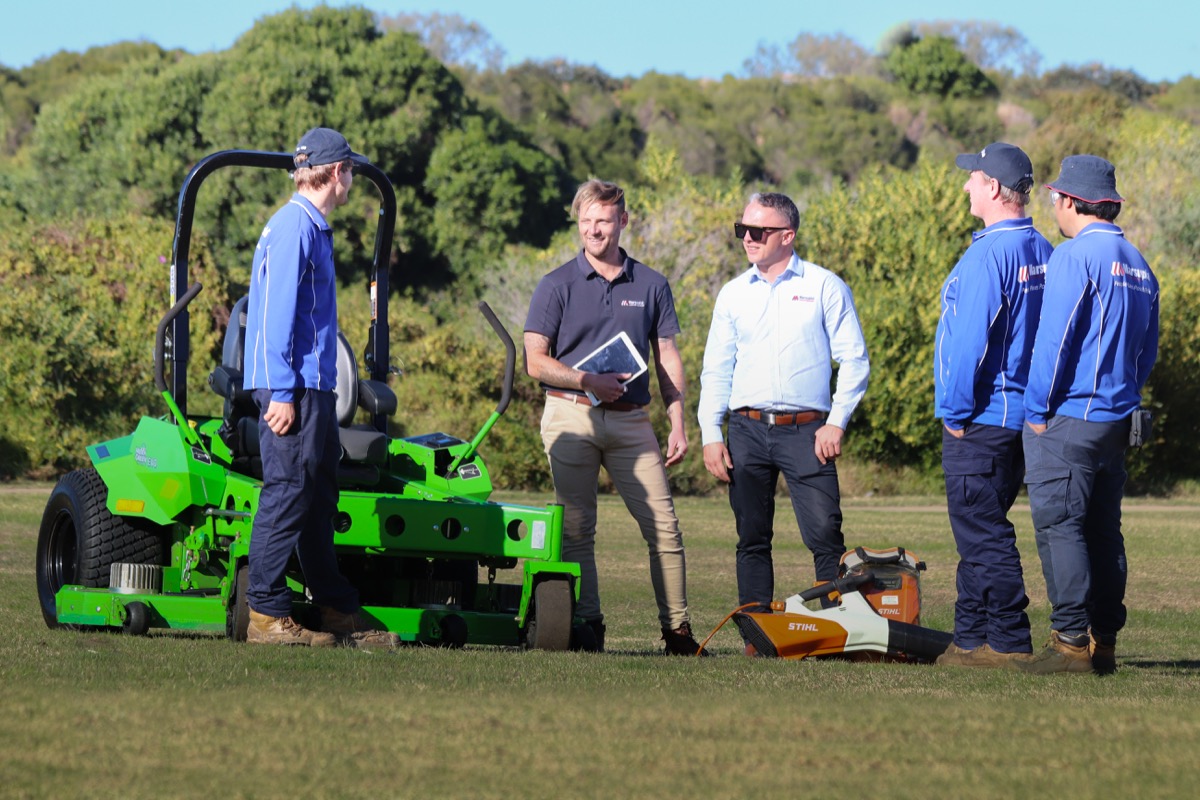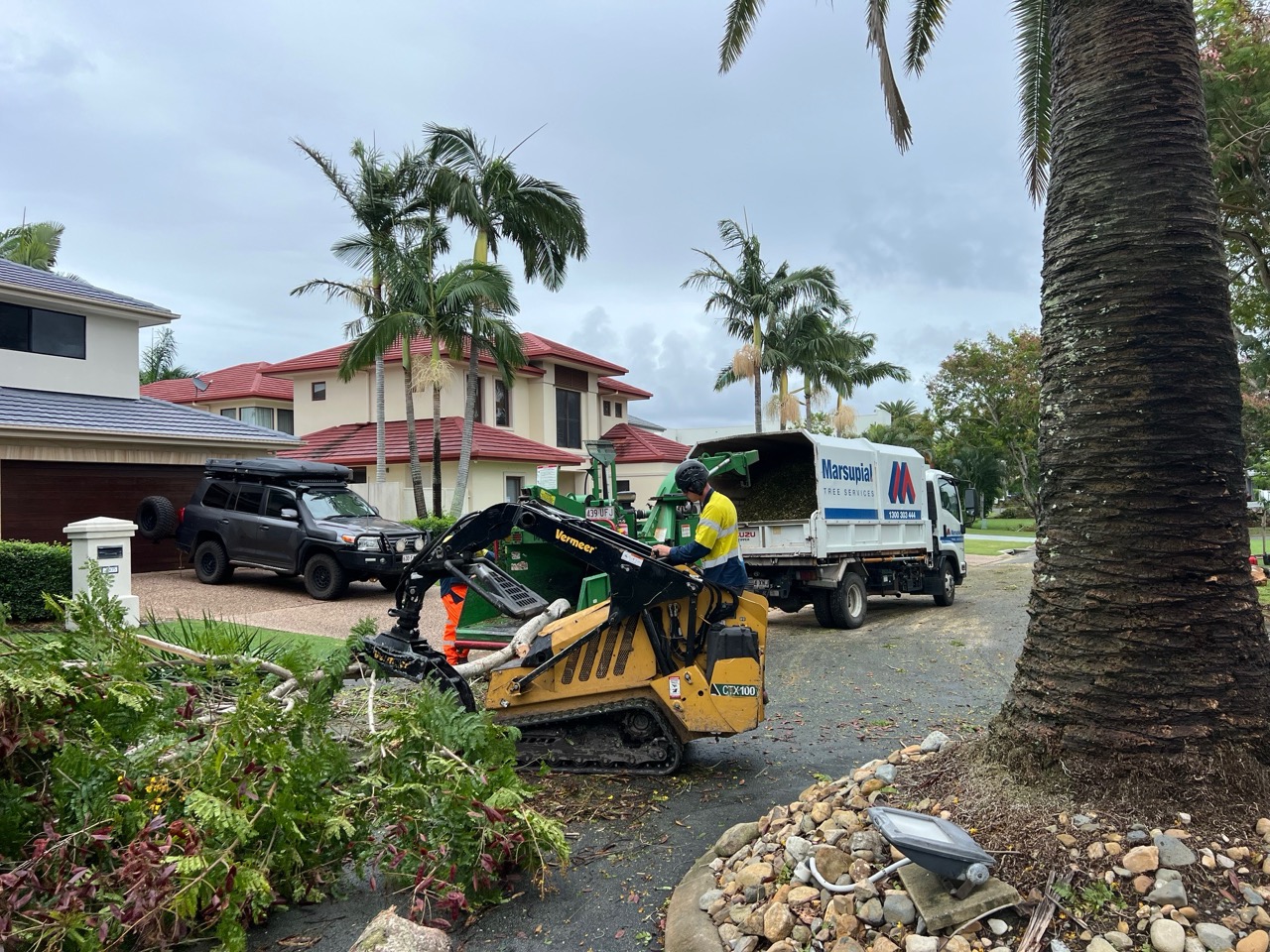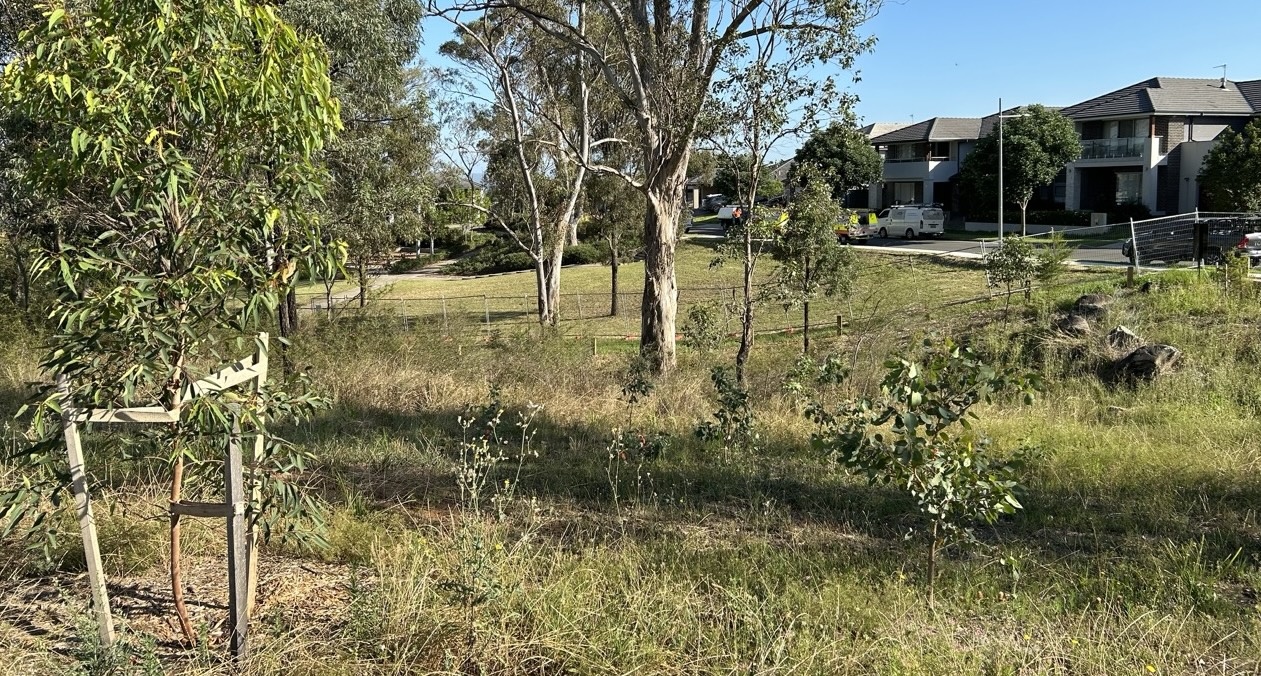Marsupial Arboriculture Management recently conducted Ariel Rescue Training to ensure the team remains at the forefront of safety practices and technical skills.
Led by Jamie Boston, a renowned figure in the arboriculture community, owner of Boston Tree Care and president of the Queensland Arboriculture Association, the rigorous one-day session covered critical rescue scenarios, including:
- Pole top rescue techniques
- Emergency procedures for severe chainsaw injuries
- Rescue operations for unconscious individuals in trees
These practical exercises train the team to respond swiftly and effectively in real-life situations, safeguarding each other’s lives and enhancing overall site safety.
Commitment to Safety
At Marsupial, safety is a priority. Although no formal standards mandate regular training, they conduct arborist training sessions every six months to stay ahead of industry standards and ensure their team is well-prepared and knowledgeable about the latest safety techniques.
“We believe that only an arborist truly understands the risks faced by another arborist,” said Sean Wallis, Marsupial’s QLD Operations Manager. “This shared understanding fosters trust and camaraderie within our team, enhancing our readiness to handle emergencies.”
These critical skills will be applied across contracts with government and civil sites. Maintaining a highly trained and capable team ensures operations are conducted to the highest standard.
Marsupial Arboriculture Management is dedicated to continuous improvement and proactive safety measures. This recent training demonstrates the commitment to staff well-being and the quality of service provided to clients.
“By prioritising safety and professional development, we cultivate a culture of trust, resilience, and growth, ensuring we remain a trusted partner in delivering top-tier arboriculture services across southeast Queensland.”
